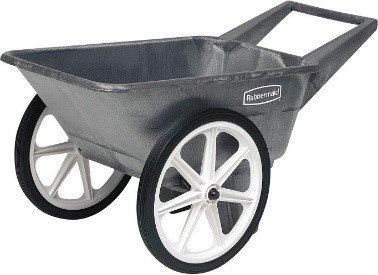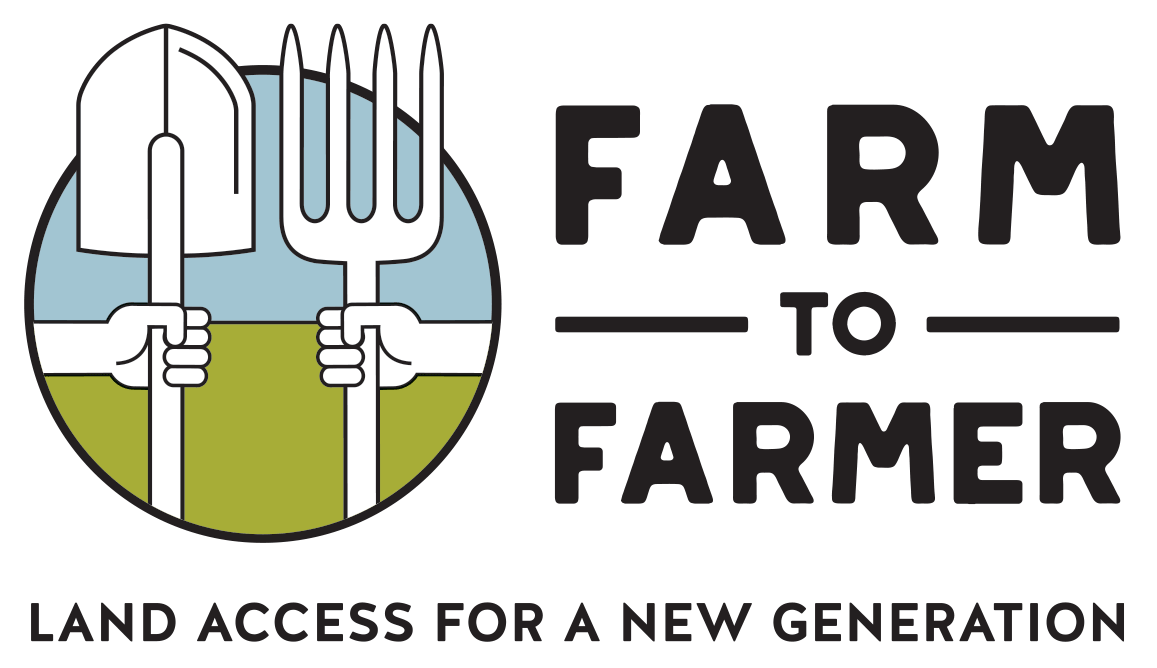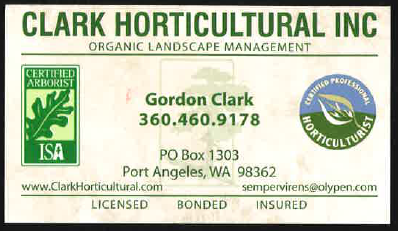Only a Few Days Remain to
Order Native Plants
Our bare-root native plant sale pre-order ends at midnight on January 23, 2022. Pick-up of orders will take place in east Port Angeles on March 4 and 5. Snag your plants today before it’s too late!
2022 Supervisor Election Deadlines Approaching
Interested in serving on the District Board?
District board members (supervisors) set district policy and program priorities, oversee district finances, and meet monthly to discuss district business and activities. They serve unpaid for a three-year term. Positions include three elected and two are appointed by the state Conservation Commission. Christy Cox’s elected position and Matt Heins’ appointed position expire in 2022. Candidate filing deadline for the elected position is February 8, 2022. The deadline to apply for the appointed position is March 31, 2022. More information is available on our Elections and Appointments Webpage.
Are you eligible to Vote?
Eligible voters must be registered to vote in Clallam County. This year’s election will still be held in person. With public health and safety in mind we’re setting polling hours from noon to 8:00pm and will mail out absentee ballots to vote by mail; however, absentee ballots must be requested.
The deadline to request an absentee ballot is February 15, 2022.
Do you want to serve as a polling officer?
Our elections would not be possible without volunteer polling officers. Polling officers work in groups of two for a minimum of a two-hour shifts.
Upcoming Volunteer Opportunities
We have some exciting volunteer opportunities coming up later this winter and spring to assist with plantings at Ediz Hook and the Dungeness River, our plant sale, and more. If you’re interested in helping and haven’t already signed up for our volunteer list please do so. Sign up for our volunteer list HERE! We will email out information and registration details to those on our list as soon as we have them.
Bring Your Soil in for Testing
If you’d like to bring your soil in for nutrient testing we will accept soil on the 1st and 3rd Wednesdays of the month from 9:00am to 4:00pm.
Taking a soil test for your gardens, lawns and pastures before adding manure, compost or fertilizer helps you determine exactly what nutrients your soil needs to achieve optimum growing conditions. Soil tests are $20 per sample, and results can take up to three weeks to return. Check out our Soil Testing Webpage for more information.
WEBINAR: Soil Testing
WHEN: February 9 (Wednesday) from 7:00 – 8:00pm
REGISTER AT: 2022 Farm Workshops
Join our webinar to learn how to test your soil to identify and correct common nutrient deficiencies, as well as protect water quality by not over applying fertilizer. This webinar will have some sections geared toward helping farms make informed decisions on timing and application rate of fertilizer and manure on pastures and fields, but also has basic information on soil and soil testing that can be helpful to gardeners as well.
Helping Your Heavy Use Area
Survive Winter Rains & Snowmelt
A two-wheeled manure cart helps with manure collection.
A 1-2% slope helps drain rainwater off a heavy use area.
Pipe roof runoff water out of the graveled heavy use area.
Many horse owners have found that a properly constructed gravel heavy use area is the cornerstone to keeping their horses happy and healthy during the wet season, while also protecting their pastures from overgrazing and damage. Graveled heavy use areas provide a mud-free, dry surface that enables routine manure collection and promotes hoof health. While the initial investment of installing a gravel heavy use area can be significant, diligent maintenance can stretch the longevity of these areas for years to come. Below are some tips to help get the most mileage out of your heavy use areas this winter:
Clean manure daily from the surface of your heavy use areas. Store the manure in a dry, covered pile located away from wells and waterways.
Invest in a good wheelbarrow, manure fork, headlamp, and outdoor lighting to help make manure collection easier. One of the main reasons heavy use areas fail and revert to mud is because manure is not routinely collected and becomes ground into the gravel surface from the horse’s hooves.
Don’t let animals have unrestricted access from a gravel heavy use area to an exercise area or pasture. The second most common reason we see gravel heavy use areas becomes inundated with mud and fail, is from animals bringing mud into the area on their hooves from a pasture or exercise area. If you need to let your horse out for exercise we recommend turning it out for a set amount of time then cleaning their hooves if they are muddy before returning it to the gravel heavy use area.
Install a retaining board to keep shavings and bedding from escaping stalls and getting onto you graveled heavy use area. Keeping the gravel surface clean will help it last longer.
Consider confining horses in stalls during heavy snowfall since manure removal on the gravel heavy use area will be difficult in deep snow.
Ensure that all surface water, including roof runoff water, is directed away from your heavy use area. Maintain a 1-2% slope on the surface of your heavy use area to help drain rainwater off the surface.
Do not feed on the surface of your heavy use area. Hay and grain particles can get stuck on the gravel surface, breakdown and create mud overtime. It can also lead to horse health issues if they eat off gravel heavy use areas. Ingesting sand and fines from the gravel can lead to colic.
We hope this information helps keep your gravel heavy use area in top shape this winter. If you have more questions or would like to learn how to create a gravel heavy use area for your horse please visit our Conservation on Farm webpage.
Farm to Farmer Program
The Farm to Farmer program offers a land-matching website that allows program participants to post listings about their land or farm businesses. Once registered with an active listing, participants can connect with one another through a private messaging system and receive technical assistance from local program coordinators. They enlisted Mark Bowman as a program coordinator, to provide full support to both farmers and landowners throughout the process of buying, selling, or leasing farm land from start to finish.
Mark can provide assistance to landowners for a variety of topics such as developing lease agreements, succession and transitional planning resources, developing goals for land, and connecting with farmers interested in leasing and/or buying property. If you are a farmer, Mark can offer assistance to help identify land search goals, connect with landowners, navigate the lease process, assist with due diligence of properties of interest, and access education and training opportunities.
In Washington State, 75% of farmers over the age of 65 do not have a plan to transfer their land to a new generation. At the same time, development pressure and a history of systemic racism have made access to affordable land an enormous barrier for new and beginning farmers. Farm to Farmer aims to support landowners in the farm transfer process, while helping create land opportunities that allow local producers to succeed in farming.
Check out the Farm to Farmer website and feel free to contact Mark by email at mark@noprcd.org or by phone at 360-461-4131 for personalized assistance.
Follow Us on Facebook
FOLLOW US on Facebook for articles and links to educational material and upcoming events.
CONSERVATION SPONSORS
Peninsula Environmental Group - (360) 819-3081 www.peninsulaenvironmental.com
Clark Horticultural Inc - (360) 460-9178 www.ClarkHorticultural.com
Eagle Creek Tractor - (360) 683-9391
John and Kriss Seago
Conservation News sponsorship's cost $50/yr for business names printed every issue or $100/yr for a name every issue and a business card once a year. They help offset publishing and distributing costs to reach nearly 4,000 readers. CALL US TO FEATURE YOUR NAME!










